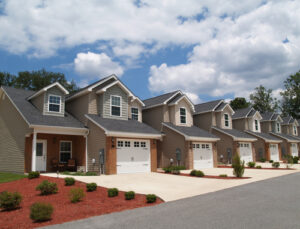
U.S. Rep. Darin LaHood (R-IL) on May 11 introduced bipartisan, bicameral legislation that would reform the Low-Income Housing Tax Credit (LIHTC), which subsidizes the purchase, construction, and rehabilitation of affordable rental housing for low- and moderate-income tenants.
“Affordable housing is vital for families throughout Illinois and the Low-Income Housing Tax Credit continues to be an important tool to drive investment in the affordable rental housing market,” Rep. LaHood said. “This bipartisan bill will modernize the Low-Income Housing Tax Credit and help expand our housing supply, strengthening communities and supporting economic development in Illinois and across the county.”
Rep. LaHood sponsored the Affordable Housing Credit Improvement Act of 2023, H.R. 3238, alongside a bipartisan group of 65 original cosponsors, including U.S. Reps. Suzan DelBene (D-WA) and Brad Wenstrup (R-OH). U.S. Sens. Todd Young (R-IN), Marsha Blackburn (R-TN), and bill sponsor U.S. Sen. Maria Cantwell (WA) on May 11 offered the same-named S. 1557 in the Senate.
“In Indiana and across the nation, affordable housing is needed now more than ever,” Sen. Young said. “The Affordable Housing Credit Improvement Act will leverage private sector investment to increase the stock of affordable housing for families in both urban and rural communities. Our bipartisan bill tackles the housing affordability crisis head-on to help Hoosier families and strengthen our communities.”
If enacted, the measure would support the financing of nearly two million new, affordable homes by increasing the number of credits available to states by 50 percent for the next two years and making the temporary 12.5 percent increase secured in 2018 permanent, according to a bill summary provided by the lawmakers.
Additionally, the bill would stabilize financing for workforce housing projects built using private activity bonds by decreasing the amount of private activity bonds needed to secure Housing Credit funding, resulting in projects having to carry less debt, and more projects becoming eligible for funding, the summary says.
The bill also would make improvements to the LIHTC program to improve how United States military veterans and victims of domestic violence, formerly homeless students, Native American communities, and rural Americans are served, according to the summary.
“In addition to growing affordable housing development across our communities, this legislation will also help homeless youth and veterans who seek access to affordable housing while pursuing an education,” said Rep. Wenstrup. “Affordable housing is one step towards the American dream, and I look forward to working with my colleagues to pass this bipartisan and bicameral bill.”
The ACTION Campaign, a coalition of over 2,400 national, state, and local organizations and businesses, supports the measure.



